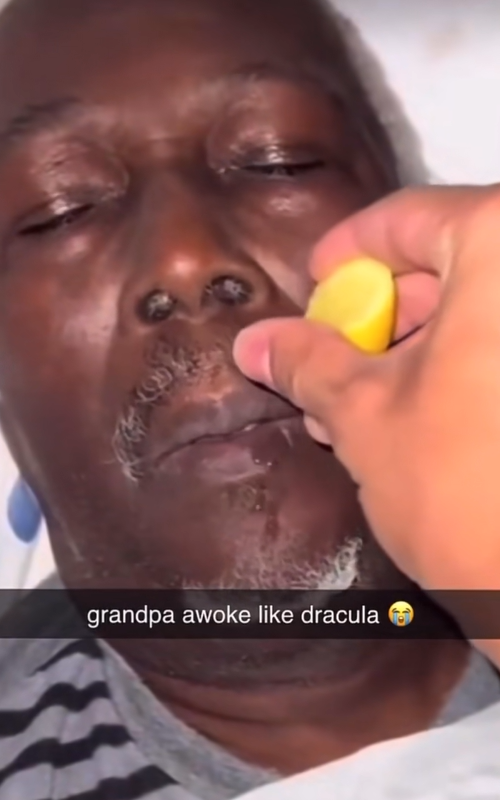The Breach of Deep Sleep: How a Lemon’s Tartness Triggers a Primal Defense Alarm
Deep sleep, also known as Slow-Wave Sleep (SWS), is a profound state where the brain minimizes external stimulus processing to focus on essential restoration. However, our senses are never entirely switched off—they become highly selective, allowing only the strongest, most potentially threatening stimuli to penetrate.
The lemon, with its intense sourness (a flavor evolutionarily linked to spoilage or toxins), is one such powerful sensory trigger. If someone were to place lemon juice on a person’s lips or tongue during this deep phase of sleep, the body would likely mount a rapid, self-preservation response:
- Immediate Physiological Reflex (Non-Waking): The strong, acidic taste is likely to trigger an instinctive reflex. Even without fully waking, the person may exhibit strong grimacing, facial movement, or a muscular contraction around the mouth. This is the body attempting to physically reject the “threatening” substance.
- Increased Heart Rate and Respiration: The sudden, powerful stimulus causes an alarm reaction in the autonomic nervous system. Heart rate and breathing may instantly quicken, signaling the body is preparing for action.
- Abrupt Shift from Deep Sleep: The biggest and most dramatic reaction would be the rapid transition from deep sleep to a lighter stage (like NREM 2) or an immediate awakening. The lemon acts as a forceful “hammer” to the brain’s alertness system. The person would wake up confused, with a powerful sour taste in their mouth, and likely disoriented as to the source of the sensation.
Essentially, even in the most vulnerable state of rest, the body is programmed to defend itself. The lemon’s acid (a potent danger signal) quickly breaches the barrier of deep sleep, transforming the night’s stillness into a dramatic moment of alarm.
